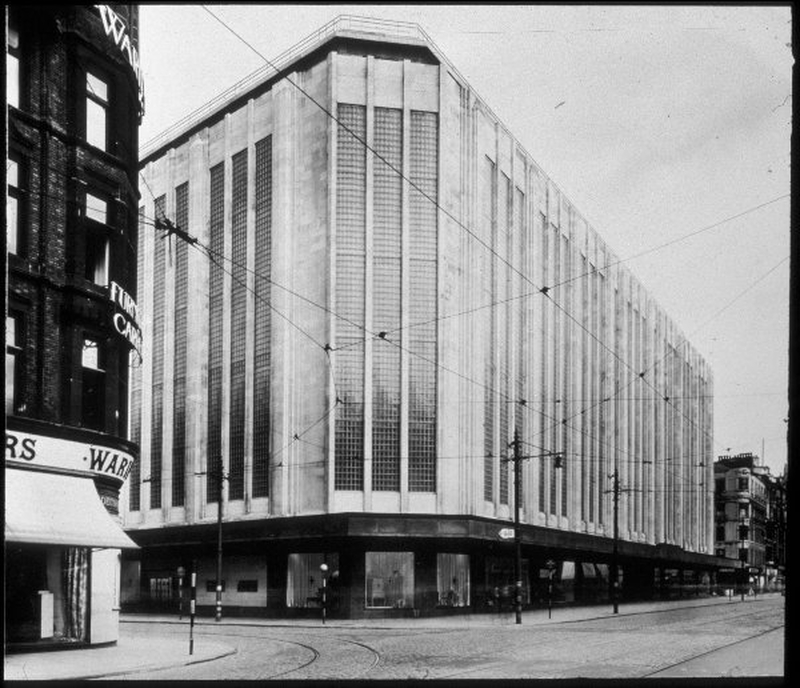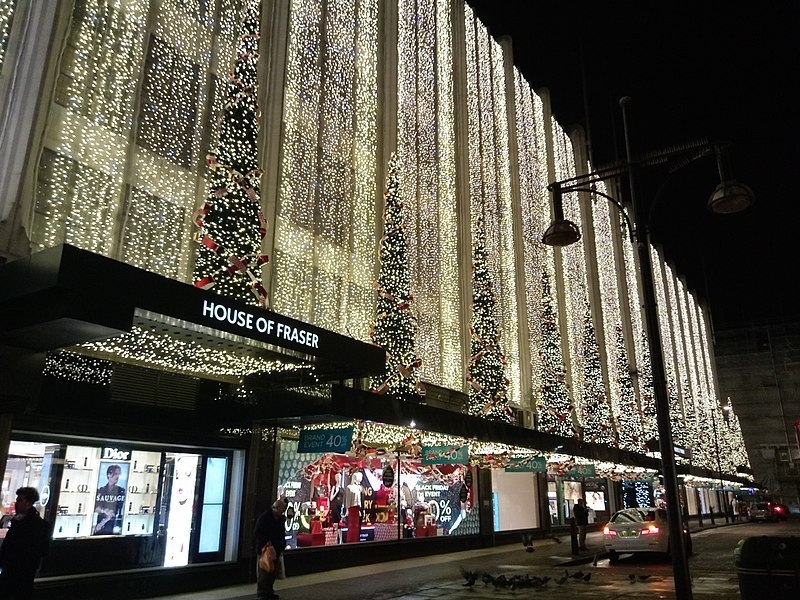Jonathan Schofield on the demise of a Manchester retail icon
THE CLAMOUR will be loud. That lodestone of Manchester retail, Kendal’s, is closing.
Kendal’s, that’s the name given to it by the BBC and the MEN despite the fact it has been House of Fraser for more than a decade and hasn’t been locally owned since 1919. That’s when Harrods took it over and changed the name and all hell broke loose in the letters pages of the Manchester press, so the name reverted.
That building now has to be cherished and a fitting use found for it
The closure is a tragedy for the staff who in uncertain times have now to look for work, unless a saviour can be sought. Yet it is part of the retail story. The difference with Kendal’s, of course, is it’s age and its reputation. The original ancestor of the store was opened by John Watts at the end of the eighteenth century. He passed it on to Kendal, Milne and Faulkner, which is the name currently over the main Deansgate entrance.
They were originally on the other side of the road. Waterstones occupies the purpose built building there from 1873. Expansion followed expansion and prestige became second nature, especially as William Morris opened a concession in the store to bring the best of fashionable furniture to Deansgate in the late 19th century.
Read the literature, watch the plays, go through the Coronation Street record and there are endless mentions of Kendal’s by Harold Brighouse, Anthony Burgess, Howard Jacobson as well as Tony Warren and others. It became the totemic store for the aspirant. If you could shop at Kendal’s it meant things were good. In that case you didn’t go to Lewis’s you went to Kendal’s.

People of old age fondly recall in-store events that included pageants, food fandangos, high-glam catwalks and extravagant Christmas celebrations. A store that hosts such memories is special, but there has not been much of the special about House of Fraser/Kendal’s latterly. There has been little evidence of that flair for the spectacular, there have been few events. The opening of Cicchetti restaurant was a smart move but House of Fraser, as it declined, was in no position to make the store stand out as an exceptional shopping experience, aside from its heritage and its spectacular Modernist host building from 1939 by the practice of JW Beaumont.
That building now has to be cherished and a fitting use found for it. Come on John Lewis, we know you have not had the best time of things recently, but the most famous retail site in Manchester is right there for the taking. There are lots of excellent staff trained and ready too.
Or if that proves impossible let me indulge in a fantasy.

Is there any philanthropist out there with maybe £15m, who could give this city the museum it misses, the last piece in its cultural jigsaw? Given the city’s over-achievement in politics, industry, science and culture can we not take this magnificent building and turn it into The Museum of Manchester. If Liverpool has their museum can we not have the same, only with less sentimentality.
The hard lesson of city life is, in the end, situations and circumstances change. Such times aren’t usually accompanied by such cruel irony. As Kendals announces its closure Amazon announces it is bringing 600 jobs to the city centre half a mile away. It’s down to Amazon more than any other company that traditional retailing is having such a terrible time. The internet has become Death wielding a scythe for the High Street.
John Watts, who opened up more than 220 years ago, might understand something of the fluid nature of business. His company, under the tutelage of his family, after selling out to Kendal, Milne and Faulkner, became one of the greatest textile companies in the world. Now the Watts Warehouse on Portland Street is the Britannia Hotel. How the mighty fall.
At least we have Fred Aldous and its art supplies, and Forsyths, with its musical instruments, to remind us of 19th century retail. Kendals looks like its closing, but, the comforting thought is, the city will re-invent itself.












